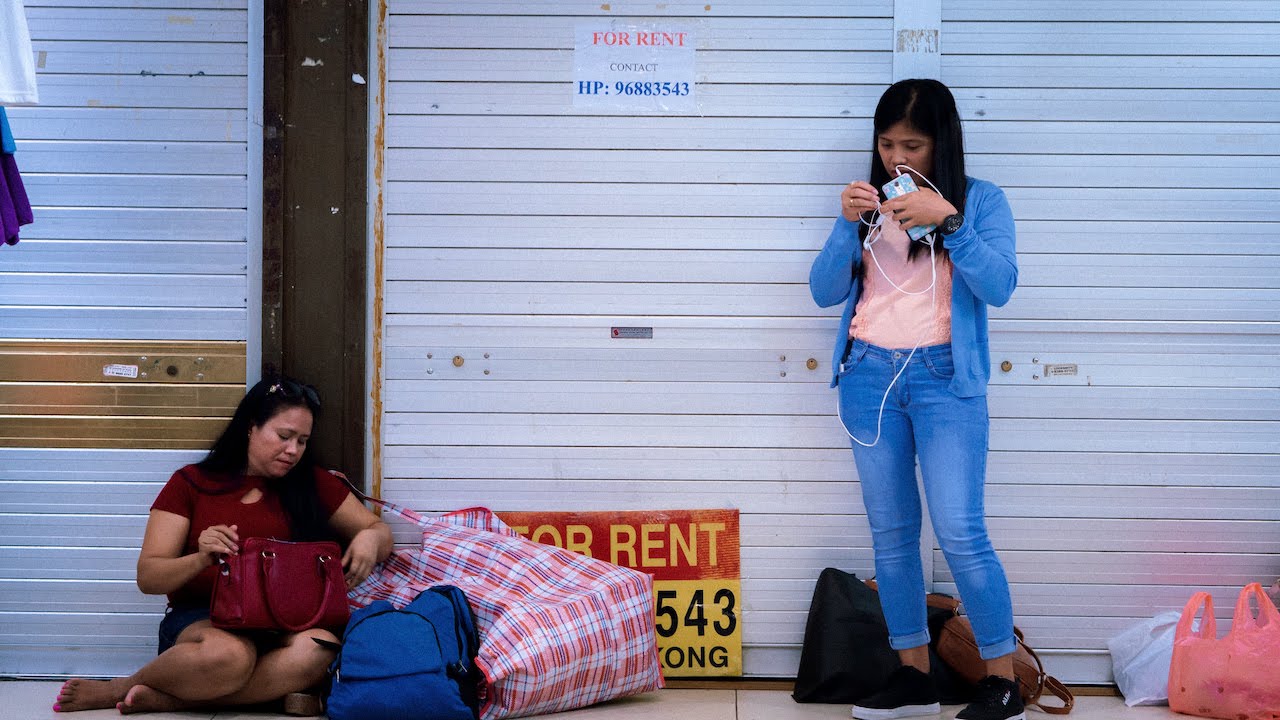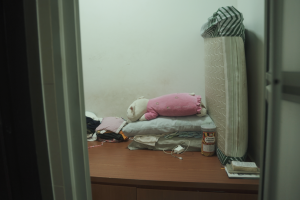One evening in late May, Bhing Navato was washing the dishes when her employer, a Dutch national, approached her carrying her newborn baby. She asked Bhing how she felt about Singapore’s first phase of reopening after the two-month-long “circuit breaker”, or partial lockdown.
Bhing is no stranger to adversity. In the 25 years she has been working in Singapore under her dozen-odd past employers, she has been overworked, scolded, made to sleep in a basement room with little sunlight, assigned risky tasks like cleaning ceiling fans from a height, prevented from using her phone, and kept from leaving the house or talking to anyone. But this time, confronted with this question, she broke down in tears in front of her employer.
Two days before, the Singapore government had announced that social gatherings would still be prohibited after the partial lockdown was lifted on 1 June. Most shops would remain closed, and eating-out would continue to be disallowed.
“I don’t know when this will stop,” she said.
With light brown hair, expressive eyes, and neatly-maintained eyebrows, she looks younger than her 47 years. Over a WhatsApp video call, she told me about her three married children and seven grandchildren. They live in her home region, Luzon, in the Philippines. A few weeks before, her son asked her when she was coming home to visit. She told him that she did not know. Under her current employer, Bhing has been able to go home three times a year. She had originally planned to go home this June to visit her youngest son in Baguio, a mountainous city in the Luzon tropical forests known for its giant pine trees and rose-coloured cathedral.
“When will I ever see them again? Or am I stuck here forever?” she said.
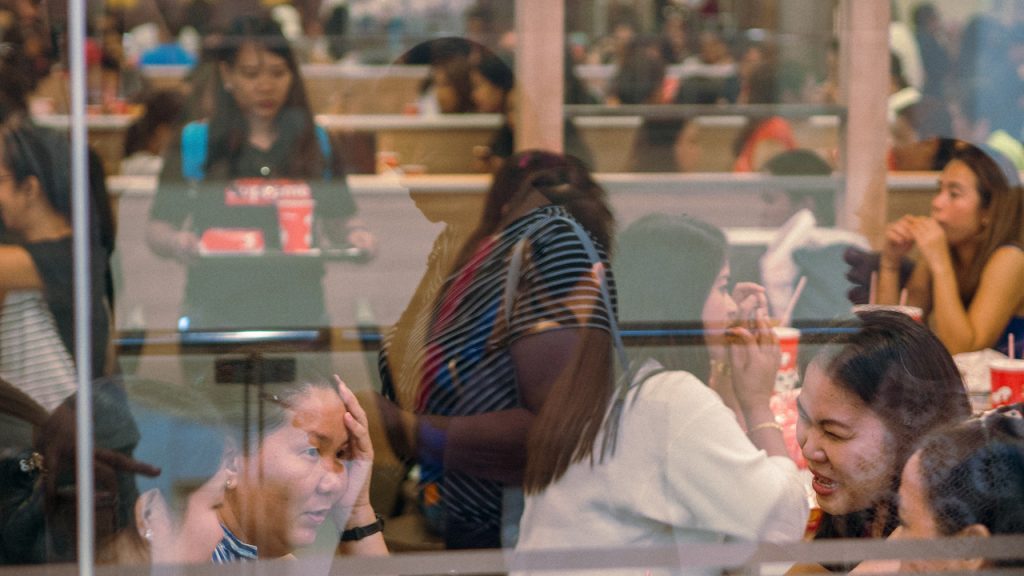
Homesickness and uncertainty are not the only challenges that foreign domestic workers are facing during the circuit breaker period in Singapore. The Humanitarian Organisation for Migration Economics (HOME), a non-governmental organisation working on migrant worker issues, released a statement on 15 May highlighting the challenges faced by domestic helpers during the “circuit breaker” period. These challenges include being overworked, abused, and prohibited by their employer from leaving the house to carry out activities like remitting money home.
Some are facing pay cuts. Others have employers who are delaying or withholding their salaries during this pandemic. Some are experiencing difficulties returning home after having their contracts terminated.
“It is not just domestic workers but everyone who is stressed about the current situation. But the most vulnerable here are the domestic workers,” Bhing said.
Interested to find out how domestic workers have been affected by the pandemic and circuit breaker measures, I spoke to eight women who are foreign domestic workers in Singapore. They are just a small sample of the diverse group of more than 260,000 women who form the invisible army that cooks for, cares for, and cleans up after hundreds of thousands of Singaporean families. This diverse community is too often reduced to crude caricatures, such as the famous fictional character in The Noose, Leticia, a Filipino maid.
In truth, there are among them poets, photographers, activists, and former radio DJs. There are avid Dan Brown readers and Avengers fans. But a common theme underlies their experiences: it is a story of being overlooked by the only institutions available to protect them and diminished by the very families they spend the prime of their lives taking care of. And during the partial lockdown in Singapore, there has been little attention paid to their situation.
Since the circuit-breaker measures took effect on 7 April, HOME has seen a 25% increase in the number of calls to their helpline. In normal times, domestic workers already struggle to secure fair working conditions. The pandemic further constrains their freedom and control over their own lives. While the pandemic has reminded us of our collective humanity—all human beings, are vulnerable to infection—it also reveals the inequality entrenched within our homes.

“She is very depressed,” Bhing said. “She is not afraid to commit suicide but she is afraid I will tell her employer she wants to.”
In mid-March, as the pandemic arrived in Western countries, Ann arrived in Singapore. Newly married to a friend she had known since elementary school, she was eager to have one last stint overseas as a domestic worker to earn additional money before starting married life.
She considered herself a seasoned domestic worker, having previously completed a two-year domestic work contract in Singapore. She had also previously worked in Lebanon and Saudi Arabia, where Ann said, “It is very difficult, they don’t use the law … if someone raped you there, it is okay.” But her six years of experience did not prepare her for what was to come.
When she arrived in Singapore, her employer said to her, “I will treat you like a robot.” True to their word, her employer installed a CCTV camera in the room where she slept. As she rested on a thin mattress on the floor, she knew they might be watching her. The only privacy she had was when she used the toilet. They made her eat leftovers for dinner, and on occasion gave her only fish bones and chicken bones to have. Whenever she cried, the employer would berate her, threatening to lock her inside the storage closet.
“It’s like you are not a human being, you are an animal,” Ann said.
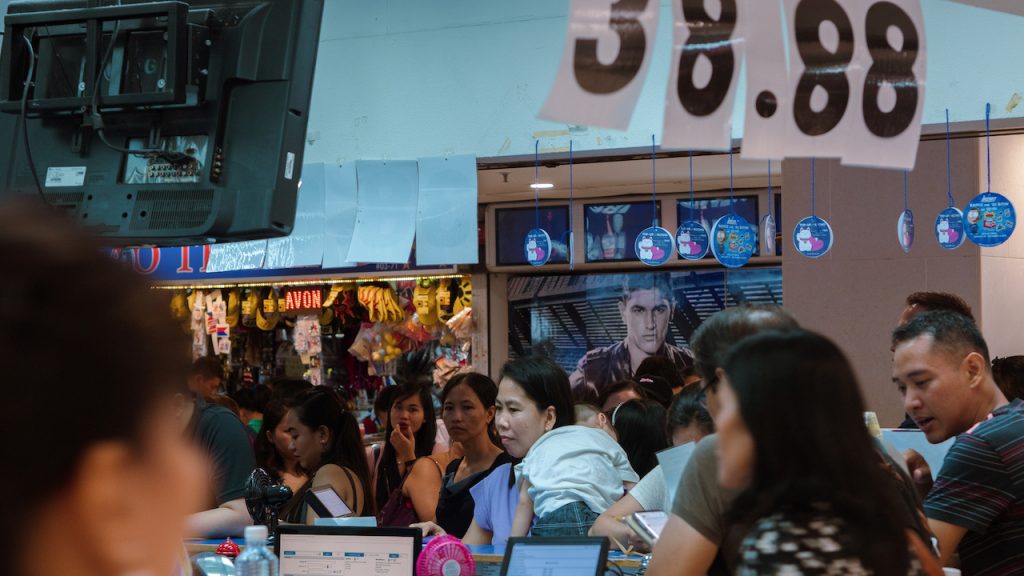
On the morning of 24 May, Bhing received a message from Ann. Over the past week, she had written long paragraphs documenting the insults and abuses she had endured. On 21 May, Ann wrote: “Worst feeling…Every day scolded me…Every day I just cry in the whole entire day…I was distress and I can’t even understand why they find me problem everyday.”
Before the pandemic and before social distancing regulations were imposed in Singapore, Ann and women like her might have been able to seek refuge in the shelters run by non-profits like HOME. There, they would have had access to a clean bed, nourishing meals, art classes or Zumba lessons, and assistance in reporting their case to the authorities.
But safe distancing measures have severely limited the number of runaway domestic workers that HOME can take into their shelter. Travel restrictions in the region have made it difficult for domestic workers at the shelter to return home. The turnover rate of residents at the HOME shelter has stalled and the staff are uncertain whether the shelter will be able to take in residents as regularly as before.
“Worst feeling…Every day scolded me…Every day I just cry in the whole entire day…I was distress and I can’t even understand why they find me problem everyday.”
In the past month, she has had to tell 25 domestic workers that there is no place at the shelter. Fifteen of those, desperate to escape, have run away to their employment agencies or to police stations.
With entire families now working and studying from home, domestic workers are now also tasked with additional responsibilities. Bheck**, a 47-year-old Filipino domestic worker, has been assigned additional duties since circuit breaker began. As gardeners are prohibited from working during the circuit breaker period, Bheck has taken up the additional tasks of mowing the grass, sweeping the garden, and ensuring mosquitoes do not breed at her employer’s black and white bungalow.
“It’s tough because it’s not my job,” she said.
Jo Ann**, a 48-year old helper from Laoac City in the Philippines, has to cook eighteen meals a week instead of the usual twelve. She wakes up at 6:45 AM every day to vacuum the house instead of her usual 7:30 AM because by 8:30 AM, her employer will begin work at the dining table. She cannot tolerate the vacuuming noise while she works.
“With circuit breaker, the day gets longer every day. The night is so short,” she said. “When is it going to end?”
At night, she goes to bed exhausted, but often has trouble falling asleep. And yet, she knows she is one of the “lucky” ones because she has her own room. Many of her friends do not—they sleep in the kitchen or in their employer’s office.

The plan was wildly successful. By 1988, there were 40,000 women working as maids in Singapore. Today, the number is over 260,000. As expressed by Malaysian anthropologist Aihwa Ong in her essay A Bio-Cartography: Maids, Neo-Slavery, and NGOs, “Over the past decade, having a foreign maid in the household has become an entrenched entitlement of the middle and upper-middle classes throughout Southeast Asia.”
By shouldering the tasks of raising children and maintaining a household, domestic workers free up space and time for Singaporean women to pursue careers and contribute to Singapore’s economy. Today, many Singaporean mothers earn salaries in glass skyscrapers that didn’t exist twenty years ago. All the while, their domestic helpers work a meagre wage. The irony herein is palpable: while our domestic helpers are indispensable to us, our families, our society, and our economy, they are often treated as though they are dispensable.

Domestic workers are not given protection under the Employment Act, Singapore’s labour law that upholds basic labour rights including overtime pay, sick leave, and fair working hours. In contrast, foreign workers depend on the Employment of Foreign Manpower Act for legal protection. The act mandates that employers provide “adequate rest”, “adequate food”, and “acceptable accommodation”. But these terms are vague and do not clearly stipulate for employers what counts as “adequate” accommodation, food, and rest.
In 2007, Jo Ann joined the exodus of thousands of young Indonesian, Philippine and Burmese women who come to Singapore each year, hoping to get a taste of the “Singaporean dream”. Driven here by the need to earn a living for her family, she left her three school-aged children to become nanny, nurse, cook, and cleaner to a family that she didn’t know.
Getting hired by an employer is like entering the lottery; sometimes the woman is lucky, and gets hired by a family who treats her well. Other times, she is not. Almost anyone can hire a domestic worker: one only needs to be at least 21 years old, not be bankrupt, and have the “mental capacity to understand” their responsibility as an employer.
Employment contracts are drawn up between helper and employer, with wages, rest days, and rules for ending the contract determined between the two. But because a domestic worker, often desperate to be hired, is in a weaker bargaining position, she rarely is able to negotiate for fairer wages, adequate rest days, and other essential conditions like the right to annual visits home or to communicate with her family.
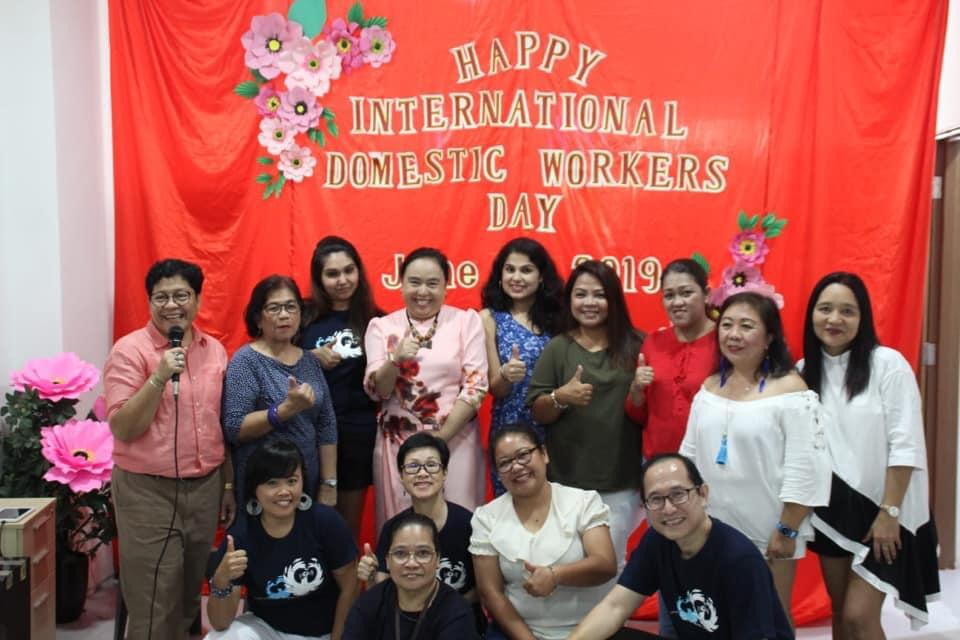
“I felt homesick, I felt alone,” Jo Ann said. “It’s not very fair and the government doesn’t include us in the protection.”
“Most of my friends don’t like it here,” said Janet**, a domestic worker from Santiago City in the Philippines. With thirty years of experience working in Singapore, she is a veteran of the industry. A migrant worker’s life may improve if she gets employed by a good family who treats her well, she explained. Otherwise, working overseas is like fighting a battle.
In her capacity as a volunteer at HOME, Bhing has heard reports from numerous domestic workers about how their employers would prevent them from leaving home, even for essential activities such as to remit money to their families or to get fresh air, citing the Ministry of Manpower letter as their justification. Other domestic workers I spoke to concurred that employers are using the circuit breaker measures as leverage to prevent domestic workers from leaving the home. Yanti explained how she has had to work until 2 PM on Sundays, her rest day, without getting paid additional wages.
Bhing recounted how a domestic worker who called the HOME hotline was prevented by her employer from going out to remit money home. According to Bhing, this caller’s employer told her that if she left home, she may catch the virus. Unless domestic workers have a bank account with online banking or access to electronic cash transfer options such as Singtel Dash, they send money home by visiting brick-and-mortar remittance centres in places such as Lucky Plaza. When employers abuse circuit breaker regulations in this way, they cut off some workers’ ability to send income to their families, income which can be essential for their families to weather the economic lockdown back in their home countries.
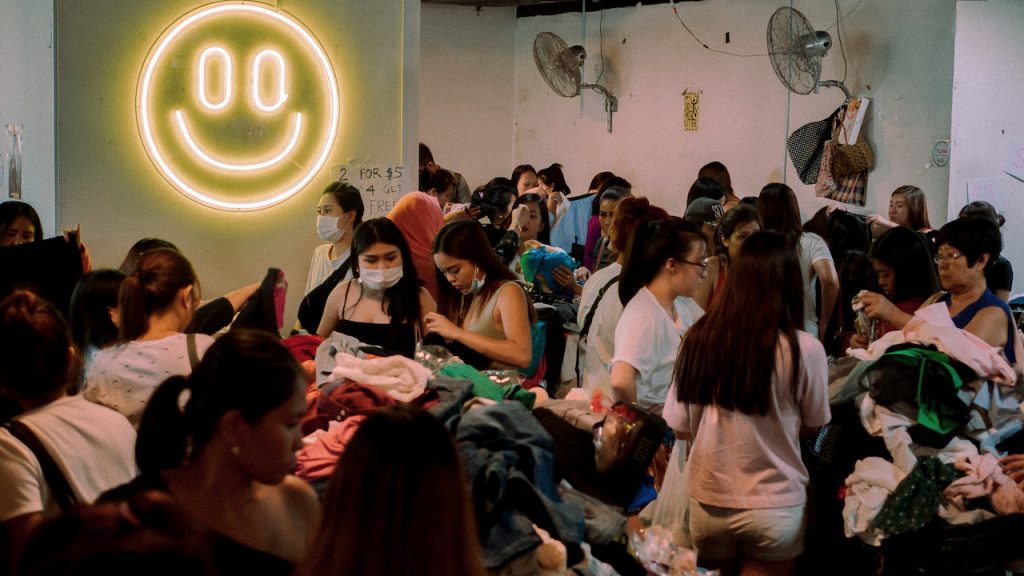
Anna* is a mother of three young daughters from Cagayan, the Philippines. She has only been working for her employer for 7 months, but has already discovered that her employer is even worse than her previous employer, who she ran away from.
Her employer has slapped her, thrown water at her, ransacked her room, and tossed her belongings on the ground. When I asked if she had any rest days during the partial lockdown, she said, “No lah, M’am.” Her employer told her that if she wants to take a day off, she would have to stay in her room all day. So she chooses to work instead and gets paid $23 for forgoing her weekly rest.
Unlike the last time, she is not even considering the possibility of running away or reporting her employer’s abuses.
“Because of the lockdown or crisis in the Philippines, because of money, I sacrifice myself to get money because I need money,” Anna told me on the phone. Her 78-year-old mother also depends on her for financial support.

Having worked for an abusive employer during her first three months in Singapore, Jo Ann knows the feeling of being afraid of your employer and understands that she cannot force them to report mistreatment.
In most other occupations, if a worker does not like or is being exploited by their employer, they can simply find a new employer. But domestic workers, with the exception of individuals in a very limited set of circumstances where they may be assisting authorities with investigations, can only change their employer or cancel their work permit if the employer chooses to let them do so. Domestic workers do not have the right to freely change employers.
“The lack of labour mobility is a key reason that domestic workers stay in very abusive situations,” explained Jaya Anil Kumar, a case manager at HOME.
But some still manage to run away.
“The lack of labour mobility is a key reason that domestic workers stay in very abusive situations”
As she wandered downstairs, she called Bhing, who told her to go to the police station. Her cousin, who also lives in Singapore, asked her to take a taxi to Lucky Plaza first, where the cousin would meet her and pay her taxi fare. From there, she went to the police station.
The police began to ask questions about what had happened. Ann was so nervous that she found it hard to breathe. The officer asked if she could return to her employer’s house.
“If I go back, I will really want to die,” she said.
A higher-ranked officer decided that her employment agent, a Filipino woman, would accompany her to the home to retrieve her belongings. If you encounter problems, they told her, call 999.
She was only able to terminate her employment contract because her agent possessed papers for release from the contract and the cancellation of her work permit. Now, Ann is staying at accommodation provided by her employment agency, who has to help her find a new employer within 14 days or repatriate her back to the Philippines. The new 14-day provision was announced by MOM on May 20, intending to make the transfer of domestic workers easier. But HOME explained in a statement that 14 days is often too short a time to find a new employer.
The house where Ann is staying as she looks for a new employer is a spacious, landed property. She shares it with six other people, one of whom is going home. They have big rooms, a big toilet, a big kitchen.
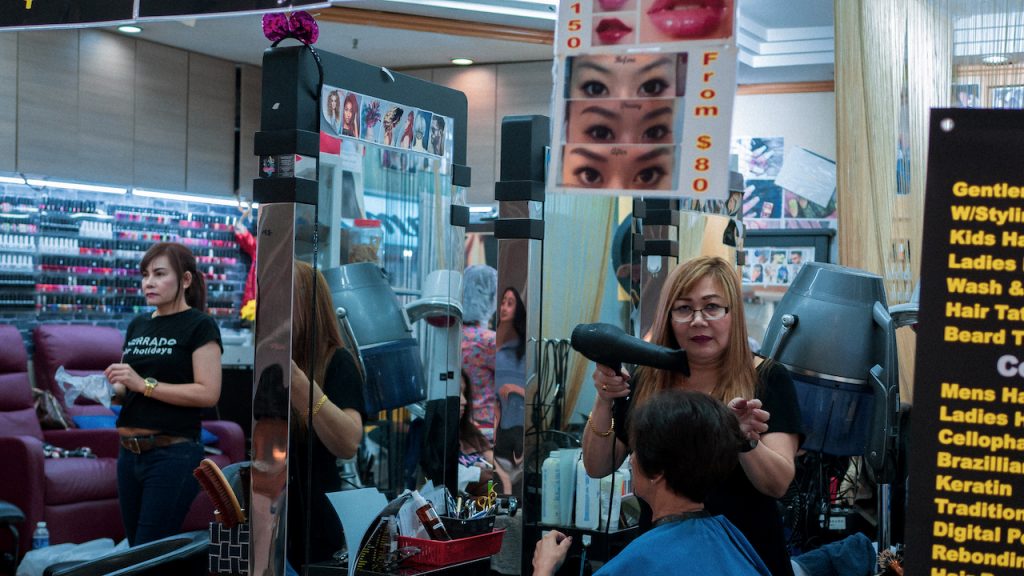
During this pandemic, Singaporeans and residents have had to stay at home, work from home, and learn to negotiate their privacy and personal space in a crowded house. For many, this confinement and loss of control is a new experience. But for domestic workers, such confinement has been a lived reality. Perhaps this pandemic is an opportunity to reimagine how Singaporean households can become a better place workplace for thousands of women whose labour limits them to the home.
* indicates a name has been changed to protect privacy
** indicates a surname has been omitted to protect privacy
